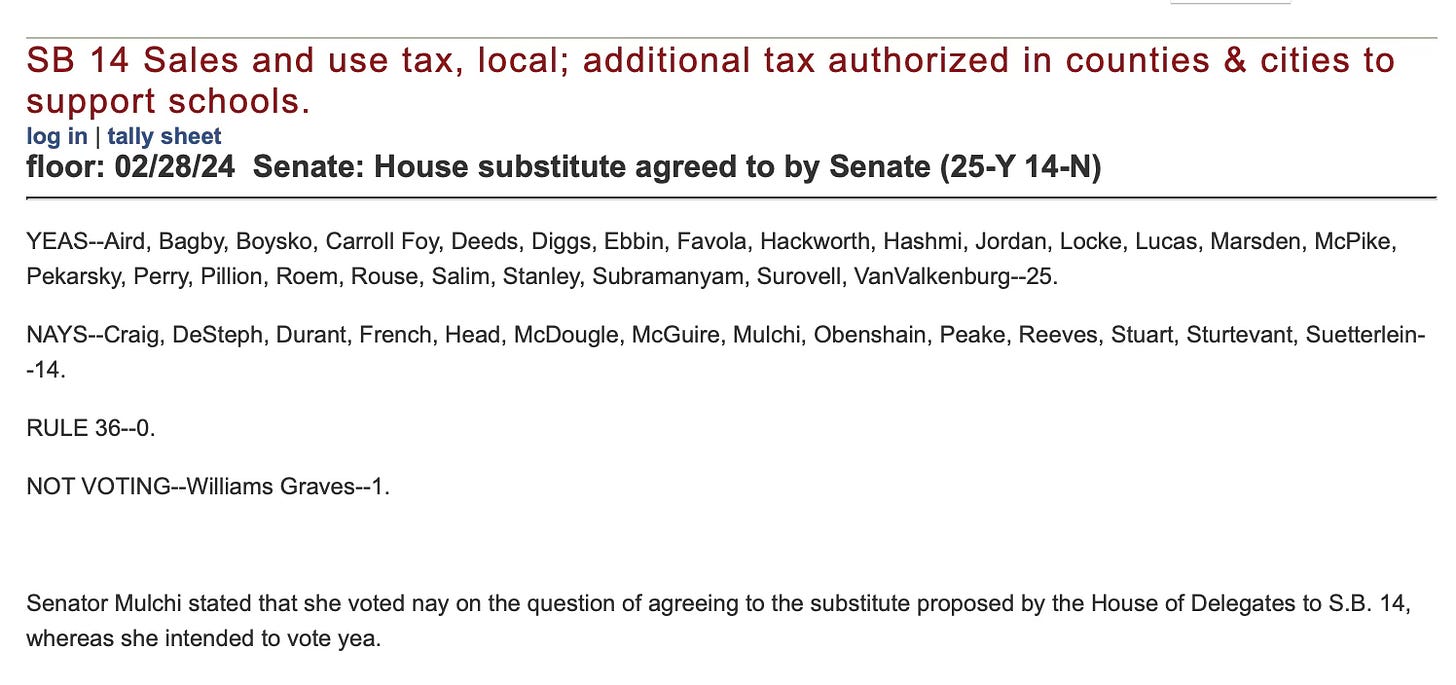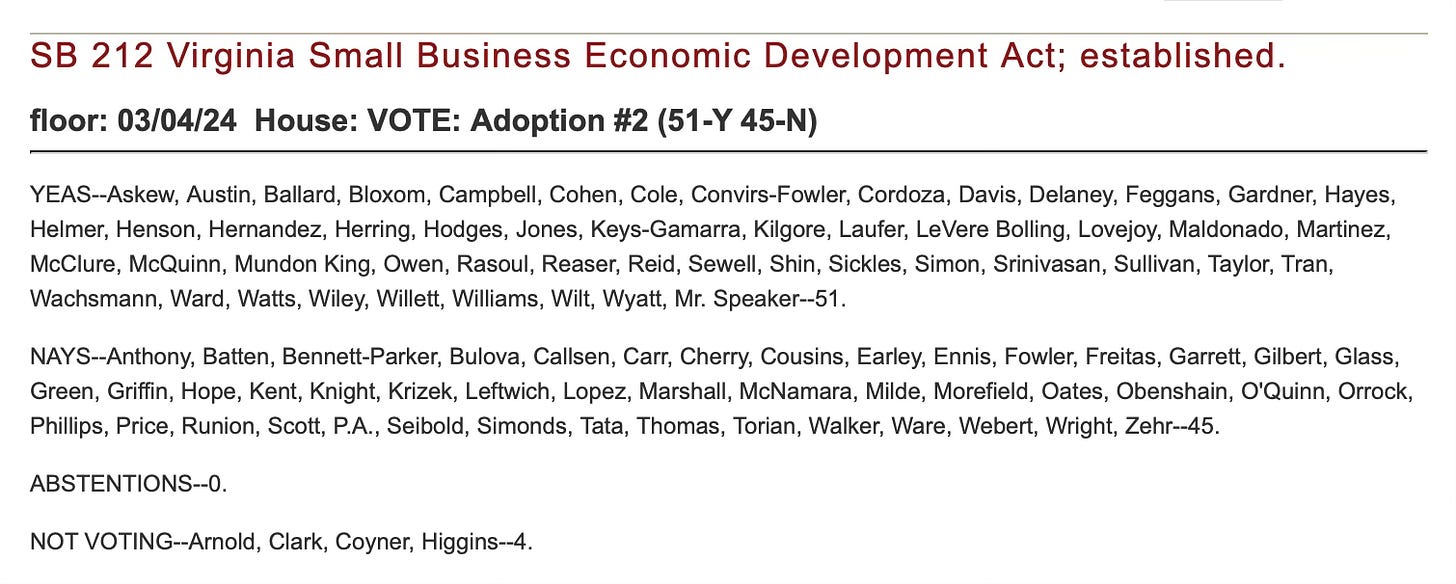Two interesting decisions today for Republican legislators
The General Assembly - the very NEW General Assembly will consider 153 vetoes and 242 budget amendments.
Two stand out in tracking the how Republican voting will show a direction for their party:
SB14 - Sen. Jeremy McPike (D- Prince William) bill was VETOED by Governor Glenn Youngkin
Additional local sales and use tax to support schools; referendum. Authorizes all counties and cities to impose an additional local sales and use tax at a rate not to exceed one percent with the revenue used only for capital projects for the construction or renovation of schools if such levy is approved in a voter referendum. The bill removes the requirement that such a tax must have an expiration date on either (i) the date of the repayment of any bonds or loans used for such capital projects or (ii) a date chosen by the governing body.
https://lis.virginia.gov/cgi-bin/legp604.exe?ses=241&typ=bil&val=SB14&submit=GO
Here are the final votes for passage:
And SB212 from Sen. Aaron Rouse (D - Virginia Beach) on Skill Games was HEAVILY amended by Gov. Youngkin.
Virginia Small Business Economic Development Act established; regulation of skill game machines; penalties. Establishes the Virginia Small Business Economic Development Act for the purpose of providing a regulatory and registration scheme for skill game machines in the Commonwealth. The bill authorizes and specifies the registration requirements for the distribution, operation, hosting, and play of skill game machines, as defined in the bill.
https://lis.virginia.gov/cgi-bin/legp604.exe?ses=241&typ=bil&val=SB212
Final votes for passage:
These two bring to mind President Reagan’s view of federalism which once a pillar of Republican ideology.
This scene from Indiana Jones and the Last Crusade come to mind:
President Ronald Reagan’s Executive Order on Federalism
Bold for emphasis
October 26, 1987
By the authority vested in me as President by the Constitution and laws of the United States of America, and in order to restore the division of governmental responsibilities between the national government and the States that was intended by the Framers of the Constitution and to ensure that the principles of federalism established by the Framers guide the Executive departments and agencies in the formulation and implementation of policies, it is hereby ordered as follows:
Sec. 2. Fundamental Federalism Principles. In formulating and implementing policies that have federalism implications, Executive departments and agencies shall be guided by the following fundamental federalism principles:
(a) Federalism is rooted in the knowledge that our political liberties are best assured by limiting the size and scope of the national government.
(b) The people of the States created the national government when they delegated to it those enumerated governmental powers relating to matters beyond the competence of the individual States. All other sovereign powers, save those expressly prohibited the States by the Constitution, are reserved to the States or to the people.
(c) The constitutional relationship among sovereign governments, State and national, is formalized in and protected by the Tenth Amendment to the Constitution.
(d) The people of the States are free, subject only to restrictions in the Constitution itself or in constitutionally authorized Acts of Congress, to define the moral, political, and legal character of their lives.
(e) In most areas of governmental concern, the States uniquely possess the constitutional authority, the resources, and the competence to discern the sentiments of the people and to govern accordingly. In Thomas Jefferson's words, the States are ``the most competent administrations for our domestic concerns and the surest bulwarks against antirepublican tendencies.''
(f) The nature of our constitutional system encourages a healthy diversity in the public policies adopted by the people of the several States according to their own conditions, needs, and desires. In the search for enlightened public policy, individual States and communities are free to experiment with a variety of approaches to public issues.
(g) Acts of the national government -- whether legislative, executive, or judicial in nature -- that exceed the enumerated powers of that government under the Constitution violate the principle of federalism established by the Framers.
(h) Policies of the national government should recognize the responsibility of -- and should encourage opportunities for -- individuals, families, neighborhoods, local governments, and private associations to achieve their personal, social, and economic objectives through cooperative effort.
(i) In the absence of clear constitutional or statutory authority, the presumption of sovereignty should rest with the individual States. Uncertainties regarding the legitimate authority of the national government should be resolved against regulation at the national level.








